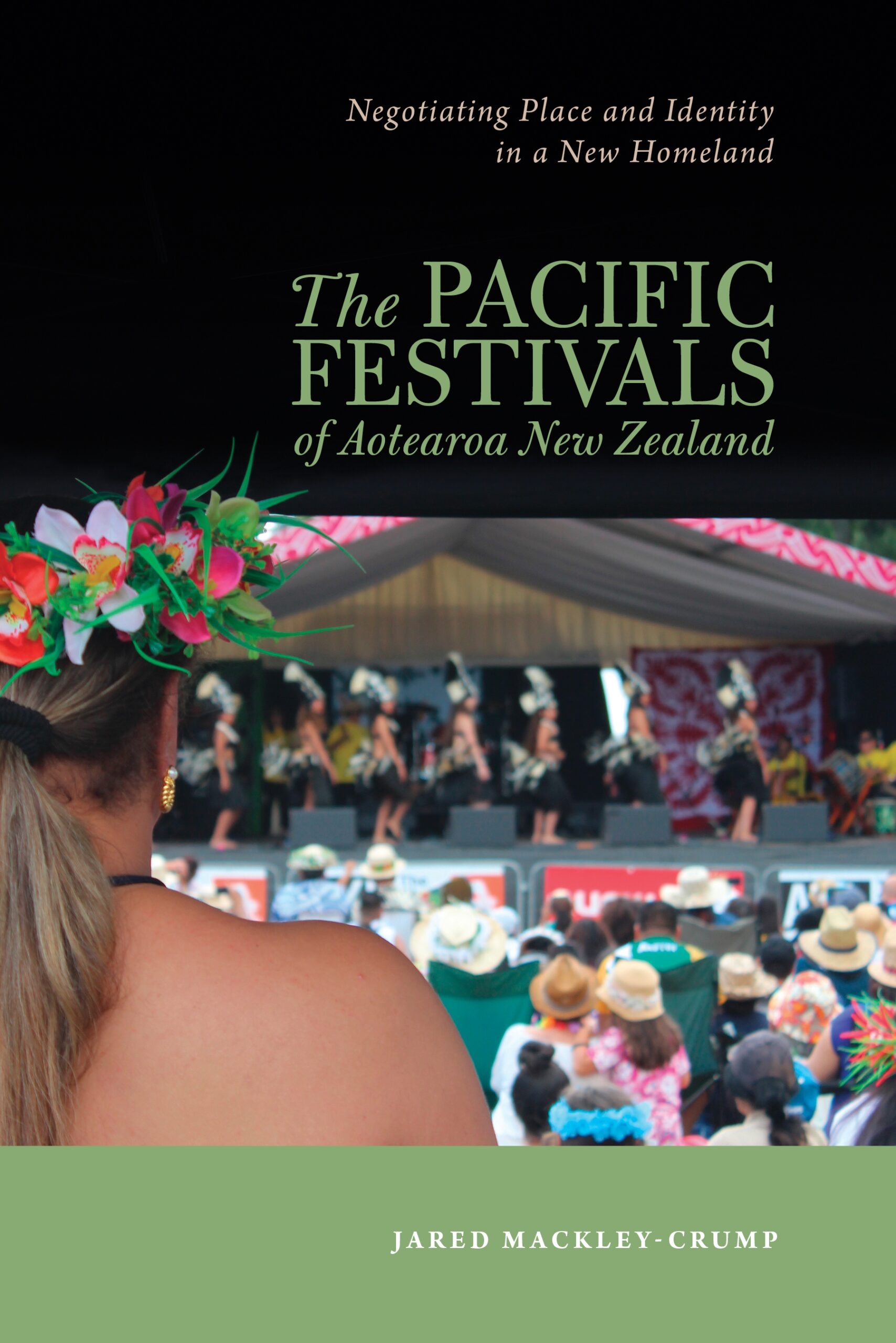The Pacific Festivals of Aotearoa New Zealand: Negotiating Place and Identity in a New Homeland
- About the Book
-
With a history now stretching back four decades, Pacific festivals of Aotearoa assert a multicultural identity of New Zealand and situate the country squarely within a sea of islands. In this volume, Jared Mackley-Crump gives a provocative look at the changing demographics and cultural landscape of a place frequently viewed through a bicultural lens, Pākehā and Māori.
Taking the post–World War II migrations of Pacific peoples to New Zealand as its starting point, the story begins in 1972 with the inaugural Polynesian Festival, an event that was primarily designed as a Māori festival, now known as Te Matatini, the largest Māori performing arts event in the world. Two major moments of festivalization are considered: the birth of Polyfest in 1976 and the inaugural Pasifika Festival of 1993. Both began in Auckland, the home of the largest Pacific communities in New Zealand, and both have spawned a series of events that follow the models they successfully established. While Polyfests focus primarily on the transmission of performance traditions from culture bearers to the young, largely New Zealand–born generations, Pasifika festivals are highly public community events, in which diverse displays of material culture are offered up for consumption by both cultural tourists and Pacific communities alike. Both models have experienced a significant period of growth since 1993, and here, the author presents a thought-provoking and wide-ranging analysis to explain the phenomenon that has been called a “Pacific renaissance.”
Written from an ethnomusicological perspective, The Pacific Festivals of Aotearoa New Zealand incorporates lively first-person observations as well as interviews with festival organizers, performers, and other important historical figures. The second half of the book delves into the festival space, uncovering new meanings about the function and role of music performance and public festivity. The author skillfully challenges accounts that label festivals as inauthentic recreations of culture for tourist audiences and gives both observers and participants an uplifting new approach to understand these events as meaningful and symbolic extensions of the ways diasporic Pacific communities operate in New Zealand.
- About the Author(s)
-
Jared Mackley-Crump, Author
- Reviews and Endorsements
-
- . . . this study offers a persuasive argument for an understanding of how Pacific festivals reflect the way in which the Pacific diaspora is situated, imagined, and has evolved in New Zealand. . . . this book is an insightful addition to the bodies of research on Pacific diaspora and Pacific festivals, and it deserves a wide readership.
—People and Culture in Oceania - The Pacific Festivals of Aotearoa New Zealand contributes to the literature on Pacific Island communities in New Zealand and to the study of cultural festivals. One of its strengths is its viewpoint from ‘inside’ festivals scenes: perspectives on events from those involved in their development, organisation and participation. . . . this book offers a new and persuasive case study of the cultural flow of Pacific experiences within New Zealand. Central to the text is a story of cultural celebration, and as a contribution to a greater appreciation of Pacific Island communities this book brings new reflection on the value of festivals and festival experiences.
—Asia Pacific Journal of Anthropology - This book is located within established theoretical debates on authenticity, tradition, cultural change, place, and identity. Beyond these key themes, the book is also situated within Pacific Studies and is pertinent to the research of diasporic communities in Pacific Rim cities. I commend Mackley-Crump for his significant contribution to this field by linking together critical academic works by Pasifika researchers (dispersed in various fields like education, social sciences, and anthropology, to name a few) and to frame a discussion of diasporic Pacific peoples in AO, NZ.
—Charmaine ‘Ilaiū Talei, University of Queensland, Pacific Affairs, 90:1 (March 2017)
- . . . this study offers a persuasive argument for an understanding of how Pacific festivals reflect the way in which the Pacific diaspora is situated, imagined, and has evolved in New Zealand. . . . this book is an insightful addition to the bodies of research on Pacific diaspora and Pacific festivals, and it deserves a wide readership.
- Supporting Resources
-





